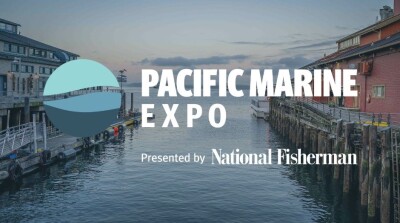On one hand, Monday's Groundfish Industry Rally at the Boston Fish Pier was a cry for help. NMFS announced today it is filing in the Federal Register its catch limits for 2013-14 Northeast groundfish stocks, which include major harvest limit cuts to key stocks in the Gulf of Maine and Georges Bank that will begin on May 1. Those cuts are expected to have devastating economic impacts on all industry-related businesses, communities and economies.
Some 300 fishermen and their families and groundfish industry advocates joined federal, state and local politicians in Boston to call upon the federal government for short- and long-term help and mitigation of the cuts. The rally's organizer, the Northeast Seafood Coalition, says that help is "critical to keeping our businesses viable."
But the event truly was a rally for the fishery. "We're trying to energize the industry," said Vito Giacalone, the coalition's policy director, following the two-hour rally. "People need to know that we're still here. We've got to get political."
Fishermen are disgusted by the council process, Giacalone says. It's not hard to see why. Over two decades, they have seen their ability to catch fish constantly reduced with each round of increasingly strict management regulations. Hence, Giacalone says, they're not attending council meetings.
But if the industry is to survive, fishermen's participation in the process is vital. Hence, the coalition organized the rally not only to say that the industry needs help, but to show the politicians that they have a constituency that still deeply cares about preserving their industry, and show fishermen that the politicians remain willing to fight on the industry's behalf.
"You're the strongest people I know," Mass. Rep. Ann-Margaret Ferrante told the crowd of fishermen. "We're still fighting and we're not giving up. We will do everything we can to ensure that every day, there's a proud fishing industry."
Massachusetts State Sen. Bruce Tarr was equally passionate about fighting to preserve the industry, labeling that fight "a sacred mission."
And if the federal government is willing to bail out big corporations when they get into trouble, Tarr said, it should be equally willing to assist the fishing industry.
"If companies are 'too big to fail,'" he told the crowd, "then for heaven's sake, the fishing industry is too important to fail."






